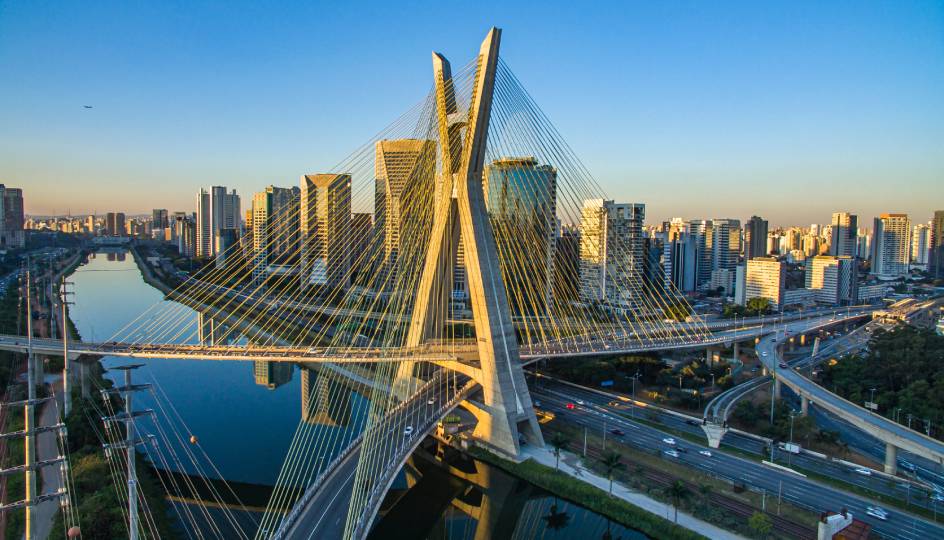US companies doing business in Brazil: what you should know

Just 25 years ago, 66% of Brazil’s rural population and 38% of its urban residents lived below the poverty line. Today, the country remains an incredibly attractive investment proposition for companies around the world.
There seems to be an optimism about Brazil that persists despite ongoing corruption scandals and economic uncertainties - and despite Brazil being one of the toughest and most challenging places to do business in the world.
For US companies looking to invest in Latin America, Brazil remains the top choice. The two largest economies in the Americas have been collaborating in the business world for more than a century - in fact, the American Chamber of Commerce in Rio de Janeiro is the oldest in Latin America - and trade in both directions is substantial and diverse. The US remains among the top sources of direct investment in Brazil; the Brazilian Central Bank indicated the US had the largest single-country stock of FDI in Brazil in 2014 (US$112 billion), the latest year with available data.
For US multinationals, Brazil is seen as a “must play” market, buoyed by its more than 200 million people who represent nearly 3% of global consumers. The US was the second-largest goods exporter to Brazil in 2016, accounting for 16% of total imported goods, behind China and followed by Germany, Argentina and South Korea. Brazil is also a large market for US services, accounting for almost US$25 billion in exports in 2016.
Bordering 10 other countries, Brazil can provide US companies with a good springboard into the rest of South America - as long as you remember they speak Portuguese, not Spanish. Local businesses are very receptive to US businesses coming in and working with them. One of the recommended routes to market in Brazil is for a US company to partner with a local business; that way, the local business can help navigate the complexity of local rules and regulations, and it is said the government looks more favourably on this sort of arrangement.
Beware the cost of doing business in Brazil
Doing business in Brazil does, however, require an intimate knowledge of the local environment, including both the direct and indirect costs of doing business - referred to as “custo Brasil” - related to distribution, government procedures, employee benefits, environmental laws and complex tax structure.
The US Olympic Committee tells a story of it setting up a Team USA store in Rio for the Olympics. First it had to establish a company which, under local rules, needed a Brazilian president, so they appointed a lawyer from a Rio firm. To staff the store, they relied on sponsor Adecco to help it stick to a strict ratio of local employees to foreigners. Then there was dealing with a sales system that had to deliver real-time reports to the government for tax purposes, along with records for the shop and receipts for customers. The final challenge, they said, was getting the goods into Brazil - shipments regularly get stuck in customs for months. When all those hurdles had been cleared, the customers were faced with higher prices than they would pay in the US.
In addition to high tariffs, US companies need to navigate a complex legal system and customs procedures, noting the Government of Brazil is the nation’s largest buyer of goods and services.
Remember, Brazil is not a member of the WTO Government Procurement Agreement, and “margins of preference” are not uncommon for domestic firms bidding on government contracts. US companies may hit a competitive disadvantage if they don’t have significant in-country presence, whether through established partnerships or a subsidiary.
It’s also worth remembering Brazil’s reputation for corruption is not unfounded. “Operation Carwash” has uncovered a complex web of public sector corruption, contract fraud, money laundering and tax evasion stemming from systematic overcharging for government contracts. However, the fact the investigation is happening shows Brazil is looking to address the reputation and make moves to improve its international standing.
Labour laws can be a tripping hazard
Perhaps, though, the biggest challenge for US companies doing business in Brazil is the complexity of labour laws. There is no such thing as employment at will; Brazilian labour laws are known for their lack of flexibility, excessive protection of employees - based on the principle they are the weak part of the employment relationship - as well as a heavy tax burden on salaries and substantial employee benefits to be paid, such as social security, paid vacations and a Christmas bonus.
The federal government, sanctioned by President Michel Temer, has been working on labour reforms for Brazil. The government has faced resistance and heated debates, but the reform entered effect in November 2017. They aim to significantly reduce labour charges and risks, which ultimately could bring economic gains to companies, and in turn should significantly boost job creation.
Success for US companies doing business in Brazil
Don’t let any of that scare you off, though. Brazil presents an enormous opportunity for US companies looking to expand their reach offshore, and there have been US companies operating successfully in the country for several generations.
Exxon Mobil is the oldest continually operated oil and gas company in Brazil, in business for over a hundred years. Chevron is also there, taking advantage of the booming oil and gas sector. Automotive is also a big winner for US companies; both General Motors and Ford have stable market shares in Brazil.
Brazil’s keen interest in technology has also been rewarded with UB setting up a research arm in 2010, while GE also opened a global research centre in 2014 in Rio, focussing on R&D. Apple, naturally, are also there, though their retail entry into the market faces stiff challenges in the form of Brazil’s steep taxes on most electronic products.
The big opportunities today lie in aviation and defence, energy, infrastructure, healthcare IT and medical devices, and services. Brazilians, too, have a great affinity with technology, and tech start-ups can find plenty of interest in the country.
TMF Group in Brazil
There is plenty of potential for US companies to succeed doing business in Brazil, as long as they remain aware of the challenges and pitfalls. To ensure a successful market entry, seek local expertise.
TMF Group has the local knowledge to help you navigate these complexities. Whether you want to set up a new venture in Brazil, or just want to streamline a partnership between the US and Brazil, talk to us. Learn more about TMF Group in Brazil.





